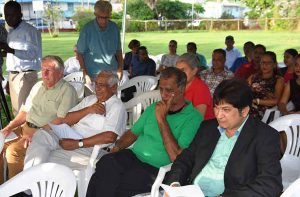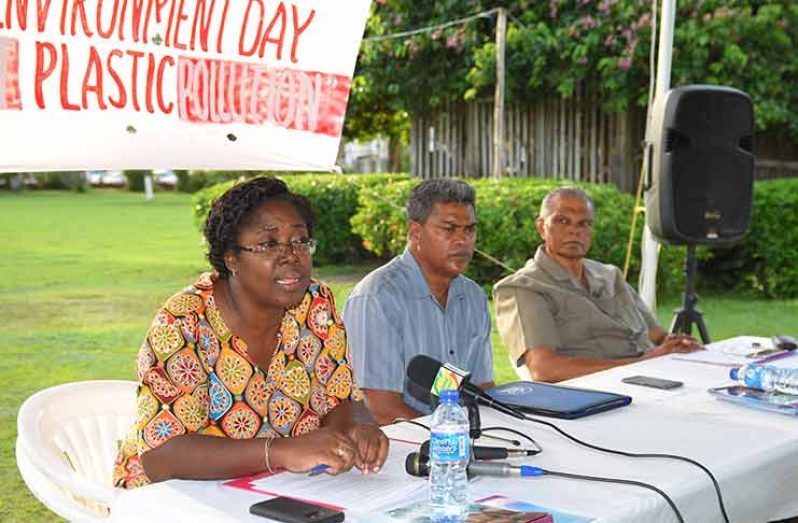– head of UG Environment Department
GUYANESE are being urged to take ownership of their environment rather than waiting on penalties to motivate them to protect and preserve their living spaces.
This was the call of University of Guyana (UG) Environment Department Head, Shanomae Rose, during an observance to mark World Environment Day organised by the Guyana Peace Council on Wednesday.
In keeping with this year’s theme, “Beat Plastic Pollution”, the event was hosted at the Promenade Gardens and saw remarks from Major General (rtd) J

oseph Singh.
Rose said even as Guyana moves closer towards banning single-use plastic products, citizens must begin to do their part in reducing the volume of plastic in their environment.
She listed the numerous negative effects of plastic pollution such as the spread of vector-borne diseases, clogged waterways, flooding and the death of marine animals.
The environmentalist added that the country’s ‘litter culture’ continues to be fueled by a “lack of ownership and pride”, which must be corrected by a national change in thinking.
“Take ownership. Don’t wait for the legislation to charge you to pay $10,000 before the court. Every one of us, we know where we are supposed to put our garbage, put it there. We know what to do, do not wait for a ‘big stick’, just do it,” she urged.
These and other effects, she said, can hinder the rate at which the Ministry of Public Health and other international health organisations are able to achieve the goal of malaria eradication in the country.
Some of the healthy environmental practices put forward were re-using water bottles, replacing plastics with paper and cardboard materials and improved plastic waste management.
“We can make a difference; we can join the efforts to beat plastic pollution and we can join them today. It doesn’t take much… if each and every one of us is to do one thing, differently, from today going forward, we will help to reduce the amount of plastics in our environment,” she encouraged.
Meanwhile, speaking on the topic of “Environmental Stewardship and the Theory of Change”, Singh pushed for increased conversations on recycling and environmental stewardship and funding for businesses with low carbon foot prints.
He also recommended that there be a consensus document which ensures that when governments change, it does not affect plans in progress for environmental development.
“The process cannot be a hit or miss one, so that when Government changes and implementing agencies have changes in personnel, we ‘throw the baby out with the bathwater,’” he said.
“One fundamental requirement, therefore, is to achieve a political consensus. A strong and broad agreement on what would be the institutional framework and desired outcomes of a Green State Development Strategy… it may be tweaked a little here and there but it remains the principle instrument for the development of Guyana,” he said.
World Environment Day was celebrated worldwide on Tuesday and was hosted in India where leading organisations urged, “If you can’t reuse it, refuse it”.



.jpg)








